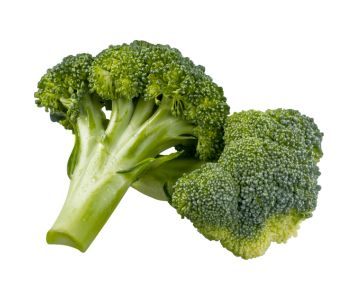I’ve seen many clients come to me with worries of gaining too much weight or losing too much weight. They even come to me for problems related to feeling weak, PCOS issues, too much sweating, etc. All related to keeping a good, fit body.
However, I’ve noticed many fail to see and view things properly. In fact, at times my clients complain about eyesight issues that medications can solve for a short or limited time.
Ensuring good eye health is extremely important. One of the most effective ways to do so is through our diet. Certain types of foods have essential nutrients that help protect the eyes from various lethal conditions.
Hi, I am Naharay Jannat (NJ), the founder and lead personal fitness trainer of NJ Eat & Fit. I have over a decade of experience in personal fitness coaching with an ISSA certification from the US. In this article, I will discuss 11 foods that can boost your vision and keep your eyes healthy.
1. Carrots
Carrots are a well-known food for eye health. They are rich in beta-carotene, a type of vitamin A that is good for maintaining eye vision. Vitamin A plays a major role in producing rhodopsin, a protein in our eyes that helps us see in low-light conditions. A deficiency in vitamin A can lead to night blindness and other vision issues.

Besides rhodopsin, vitamin A also helps to protect the surface of the eye, better known as the cornea, and prevents eye infections. Carrots are also a good source of lutein, another antioxidant that helps reduce the risk of cataracts and macular degeneration. Lutein helps to increase pigment density in the macula of the eye.
I prefer Including carrots in my diet in simple ways like
- snacking on carrot sticks,
- adding them to salads, or
- Including them in soups and stews.
2. Oranges
Oranges as citrus fruits are high in vitamin C, an antioxidant that is essential for eye health. Vitamin C helps protect the eyes from oxidative damage caused by free radicals, which can lead to cataracts and age-related macular degeneration (AMD).

Oranges also have flavonoids that improve the antioxidant effects, protecting your eyes. You need Vitamin C for the production of collagen, a protein that offers structure to your eyes and supports healthy blood vessels in the retina.
Drinking a glass of fresh orange juice, enjoying a whole orange as a snack, or adding citrus to your salads can all contribute to better eye health.
3. Spinach
Spinach is a leafy green vegetable full of nutrients that are essential for good vision. It is an excellent source of lutein and zeaxanthin, two antioxidants found in high concentrations in the retina. These antioxidants naturally block harmful sunrays by absorbing harmful blue light and protecting your eyes from damage.

Spinach is also filled with vitamin E and beta-carotene. Both of these contribute to eye health by reducing the risk of cataracts and slowing macular degeneration.
Furthermore, the high levels of vitamin K in spinach support healthy blood circulation, which is crucial for maintaining the health of the small blood vessels in the eyes.
Ways to enjoy spinach are:
- Having in salads,
- Adding to smoothies, or
- As a cooked side dish to reap these eye-boosting benefits.
4. Eggs
Eggs provide high levels of nutrition for your eyes. They are rich in lutein and zeaxanthin, the same antioxidants found in spinach. The egg yolk particularly boosts these nutrients, making eggs a great choice for protecting your vision.

Eggs also provide a good amount of zinc. ZInce is essential for maintaining the health of the retina and helps prevent night blindness. It is important because it helps the body absorb vitamin A, another crucial nutrient for eye health.
Having eggs into your diet is easy, whether you prefer them scrambled, boiled, or as part of a hearty omelet.
5. Broccoli
Another green vegetable, Broccoli, offers a wide range of health benefits for your eyes. It is packed with vitamin C, lutein, and zeaxanthin, all of which contribute to maintaining healthy vision.

As mentioned earlier, lutein and zeaxanthin help in filtering out harmful blue light, thereby protecting the retina from damage. Besides all these, broccoli contains sulforaphane, a compound that is proven to protect the eyes from environmental toxins and oxidative damage.
I would suggest you add broccoli to your meals by:
- steaming it as a side dish,
- adding it to stir-fries, or
- blending it into soups.
6. Sweet Potatoes
Sweet potatoes are loaded with beta-carotene, which the body converts into vitamin A, an essential nutrient for eye health. Vitamin A is essential for maintaining the surface of the eyes (the cornea) and preventing conditions like dry eyes and night blindness. The beta-carotene in sweet potatoes also acts as an antioxidant, protecting the eyes from free radical damage.

In addition to beta-carotene, sweet potatoes provide vitamins C and E, both of which are powerful antioxidants that support overall eye health. These vitamins work together to protect the eyes from oxidative stress and reduce the risk of cataracts and age-related macular degeneration.
I suggest enjoying sweet potatoes roasted, mashed, or in casseroles to benefit your vision.
7. Tomatoes
Tomatoes are rich in lycopene, a powerful antioxidant that has been shown to protect the eyes from damage caused by UV rays and other environmental factors. Lycopene helps reduce the risk of macular degeneration and cataracts by neutralizing free radicals that can damage the eyes.

Tomatoes are also a good source of vitamin C and vitamin A, both of which are essential for maintaining good vision. Vitamin C supports the health of blood vessels in the eyes, while vitamin A helps maintain the surface of the eyes and prevents dryness and irritation.
Incorporate tomatoes into your diet by adding them to salads, and sauces, or enjoying them fresh.
8. Almonds
Almonds are an excellent source of vitamin E. Almonds are crucial for protecting the eyes from free radical damage. Vitamin E has been shown to reduce the risk of age-related macular degeneration and cataracts by neutralizing harmful free radicals that can damage eye cells.

Also, almonds provide healthy fats that support overall eye health by maintaining the integrity of cell membranes. A handful of almonds can yield nearly half of your daily requirement of vitamin E, making them an easy and nutritious snack for eye health.
Try adding almonds to your cereal, yogurt, or salads for a crunchy, eye-boosting addition.
9. Lean Meat and Poultry
Lean meats and poultry, such as chicken and turkey, are rich in zinc, an essential mineral for maintaining healthy eyes. Zinc helps the body absorb vitamin A, vital for eye health. Also, it plays a useful role in reducing the risk of age-related macular degeneration.

Zinc is found in high concentrations in the retina, and a deficiency in this mineral can lead to night blindness and other vision problems.
Including lean meat and poultry in your diet can help ensure that your eyes get the nutrients they need to stay healthy. Whether you enjoy grilled chicken or lean cuts of beef, these foods can be a valuable part of a vision-supporting diet. However, the consumption should be limited.
10. Chia Seeds
Chia seeds are filled with omega-3 fatty acids, which are known to support eye health by reducing inflammation and promoting healthy blood vessels in the eyes. Omega-3s benefit us by preventing dry eyes and also help protect against age-related eye conditions.

Moreover, chia seeds provide a good amount of antioxidants, including vitamin E, which further contribute to eye health by protecting the eyes from free radical damage.
I recommend adding chia seeds to smoothies, yogurt, or oatmeal for a nutrient-rich boost to your eye health.
11. Fish
Fish, especially fatty fish like salmon, are excellent sources of omega-3 fatty acids. These fatty acids help hold onto the health of the retina and prevent dry eyes. Omega-3s help reduce inflammation in the eyes and lower the risk of age-related macular degeneration and cataracts.

In addition to omega-3s, fish provide vitamin D, which plays a role in reducing the risk of macular degeneration.
Regular consumption of fish can significantly boost your overall eye health. You should aim to include fish in your diet at least twice a week, whether grilled, baked, or in sushi.
Wrapping Up
The above 11 foods can go a long way in protecting your eyes and boosting your vision. By including these nutrient-packed foods in your daily meals, you can ensure that your eyes receive the essential vitamins and minerals they need to stay healthy.
Remember, good eye health starts with good nutrition, so make these foods a regular part of your diet to enjoy clear and sharp vision for years to come.
For more assistance and information about good health and a fit life, you can contact us and get a free consultation, in addition to enrolling in our various fitness programs.
You may also check my YouTube Channel and Facebook page for content and updates on fitness, workouts, and proper nutrition. Best of luck!



